- Home
- Jennifer Niven
The Aqua Net Diaries: Big Hair, Big Dreams, Small Town Page 2
The Aqua Net Diaries: Big Hair, Big Dreams, Small Town Read online
Page 2
In Hoosier City everything was a dark gray. The mail boxes were gray, the people’s clothes were gray, what they ate was gray, and the sky was gray. Not one person was happy.
To my nine-year-old mind, moving to Richmond was a torture akin only to, say, moving to Mars. The local newspaper was filled with alarming stories: Man Bites Tree. A 20-year-old man received two 180-day suspended sentences for chewing the bark off trees and breaking Christmas lights with his teeth on the city’s courthouse square. And: Piglets Are Boar to Be Wild. A 270-pound wild hog wandered the area north of KOA Campground sowing its seed before being shot to death by local farmer Jerry Fairchild . That article appeared on the front page, just below the headline: Woman Decorates House for Christmas with Dryer Lint.
The Richmond we knew was one of area festivals—in addition to the Rose Festival, there was the Pioneer Days Festival; the Hay, Hoosier Neighbor Festival; the Beef Festival (where they crowned an actual Beef Queen); and, in neighboring Preble County, the Pork Festival (which, in addition to a Pork Queen, featured a Hummel Figurine Look-alike contest and a Porkettes Microwave Demonstration). A local dance group, the Senior Steppers (ages sixty-four to eighty-two), performed medleys of armed forces songs, country, and Christmas tunes regularly at each of these.
Every year in Preble County, there was a Make It with Lard Contest, in which local ladies competed to make actual sculptures out of lard. In nearby Franklin County, there was a Bake It with Lard Contest. And for the yearly Rose Festival, Richmond’s own Joy Ann Cake Shop proudly created the World’s Largest Cookie, and Wick’s Pies of Winchester baked the World’s Largest Apple Pie (topped by 300 gallons of vanilla ice cream by Wayne Dairy). Every Fourth of July there were fireworks at Glen Miller Park (not named for the bandleader), which one of the three local radio stations broadcast over the radio. They called it “Fireworks for Shut-Ins” and this is how it went: “There goes a blue one!” “There goes a red one!”
These were things that clearly did not happen anywhere else, especially not in Maryland, where people sailed in regattas and attended flower shows and, generally, behaved themselves with dignity.
At Westview Elementary School, my new Richmond classmates talked of two things—gymnastics (the girls) and basketball/baseball/football (the boys)—as if these were the only interests anyone could possibly have. During summers, most of the girls attended cheerleading camp, where they put their gymnastics training to good use, while the boys went to camps of their own—basketball, baseball, football. In gym class, we were graded on our ability to work the balance beam, the parallel bars, and the pommel horse. I hated the balance beam because I had a fear of heights. I never learned to cartwheel because I didn’t like to be upside down. Most girls could do cartwheels on top of the balance beam.
In Maryland, I knew exactly who I was and what my place was in the world. I had played tennis and piano. I had danced and painted, and written stories about prisons and the Vietnam War. I planned to be a rock star or an archaeologist or an astronaut or an actress or a writer or a private detective when I grew up. I didn’t play team sports and I wasn’t a cheerleader, and so, I was completely unprepared for Richmond High School.
There are 109 classrooms in the high school and the main building measures 695,422 square feet—the equivalent of twelve football fields. This square footage does not include two gymnasiums, the cafeteria, the library, the counselors’ areas, the art museum, the automotive shop, two day-care centers, the auditoriums, swimming pool, indoor and outdoor tracks, tennis courts, football stadium, or the Tiernan Center, the gymnasium that opened the winter of my junior year.
Indiana is home to nine of the ten largest high school gyms in the country. When it opened, the Tiernan Center was the largest and was featured in Sports Illustrated. The old gym, Civic Hall, only sat something like 4,000 people, which, for Indiana, was considered downright shameful. The Tiernan Center seats 8,100. It has indoor track facilities, a weight training room, two indoor tennis courts, six basketball courts, and twelve volleyball courts. In addition to being the high school gym, it is the town’s largest gathering place.
My senior year, Richmond was named an All-American City by the National Civic League. The official town sign—the one that greeted visitors with Richmond, Indiana—the Rose City, Home of the Rose Festival and Hill’s Roses—was taken down and repainted so that All-American City could be added to it.
I was the All-American girl living in the All-American City. But from the moment we moved to Richmond, I knew I would get out one day and go someplace bigger and faster, someplace where wild hogs didn’t roam the streets and where men didn’t eat the bark off trees. During my high school years, I was a member of the orchestra and the speech team and a history team that competed in a national championship. I wrote for the school paper and edited the literary magazine. The boys liked me, but a lot of the girls were mean. I was never the Homecoming Queen.
Yet even though I knew that I was only passing through, that I was on my way to Somewhere Else, I still desperately wanted all the things anyone wants: to be popular, to go to all the cool parties, to fit in. And while I was there, living in that world—in Richmond, in that enormous high school on the hill—I wanted to be just as much a part of it as anyone.
Student Life Part One
WELCOME TO RICHMOND HIGH SCHOOL. An education is very important today—more important than ever. Your experience can be fun, but no one is promising that it will not involve hard work. Our expectations are high and we want you to give your best effort to make your experience and our experience worthwhile. Do your homework each day for each class. Use the library/media center—it is yours. Ask your parents and teachers for help with your assignments. Prepare yourself for the best! I hope you have a good experience at Richmond High School.
Sincerely,
Denney G. French,
Principal, 1983–1984
Rob Jarrett
Cheerleaders
Cheerleaders must be full of enthusiasm and school spirit at all times. They are in charge of coming up with ideas to keep the student body fired up. Cheerleaders perform as a team so they must follow team rules. Cheerleaders should be neat and attractive. They must be loud so they can be heard.
—RHS cheerleader requirements
The summer before high school, I walked the mile through my neighborhood to Hook’s Drugstore, which sat in a strip mall on the Great National Road just outside Hidden Valley, where we lived. Hidden Valley was one of the nicer neighborhoods in Richmond. Not as fancy as Reeveston, which was where all the rich people lived, but fancier than most. It was where the people who worked at Earlham College—“liberals” like my parents—raised their families.
I walked up to Hook’s every day to buy Charlie’s Angels trading cards, Bonne Bell lip gloss, and, most of all, to see Rob Jarrett, who worked at the cash register. Rob Jarrett went to Test Junior High School and lived on the other side of town, but his dad owned all the Hook’s drugstores in Richmond. He made Rob work at one of them every summer so that he could learn responsibility.
Rob Jarrett was the prettiest boy I’d ever seen close up. He looked just like Rob Lowe, with brown feathered hair and a white, white smile. He was so gorgeous that I would have hung his poster on my wall, if there’d been one—right next to Rick Springfield and John Taylor from Duran Duran. We had been flirting for weeks.
One day he asked me to meet him after work. We sat outside Hook’s drinking sodas, and tried to get to know each other.
“Are you excited about high school?” Rob Jarrett asked.
“I guess.”
Our high school was terrifying. It sprawled in all directions, from one end of Red Devil Boulevard to the other. It seemed miles long and just as wide. There were 2,500 students and you only got five minutes to go from one class to another.
“Are you excited about high school?” I asked.
“I guess. They had a good team last year.”
Rob Jarrett had been playing foot
ball since eighth grade. He was planning to try out for the junior varsity team at RHS.
“So what did you do in junior high?” he asked.
“Oh, you know,” I said, “hung out with friends. Things like that.”
“No, what other kinds of things. Like, were you a cheerleader?”
“No,” I said. Cheerleaders were silly. I was better than that. I was comanager of the boys’ football team with my friend Heather Craig. We washed uniforms and got to be in the school picture with the team. I had even dated a couple of the players—Darren Lawler and Brian Yoder, who was cute until he turned mean.
“Oh.” He sounded disappointed.
“I was in the Travel Club,” I said. We had met only a couple of times and mostly just looked at the atlas and talked about faraway places like Egypt and Greece.
“Really?” His voice was flat, distant.
“And the orchestra.”
He looked down at his drink. I hoped he wouldn’t think I was an orchestra geek or a band fag, which was what we called the kids who lived for band. These were the ones who never wore anything but school colors and were always carrying their instrument cases with them, no matter where they went. I was only in the orchestra because I played the cello, but my life didn’t revolve around being good at it. The fact was, I would rather have played electric guitar, but when they were handing out instruments in the fifth grade, that wasn’t an option, and I’d been assigned the cello because I was tall. “And the Drama Club,” I said. I did like to act. I had been writing, producing, and starring in my own plays—like Blindness Strikes Mary, my version of the true-life story of Mary Ingalls, Laura’s blind sister, which I had written in fourth grade, as well as the antismoking play my cousin Ashley and I had written and performed one summer for our grandmother (a passionate smoker)—since I was little.
Rob Jarrett yawned, covering his mouth with tanned knuckles. He wore a Band-Aid on the little finger. It made him seem rugged.
“And choir,” I said. I loved to sing, although I wasn’t very good at it. Still, I had managed to make choir every year.
Rob Jarrett just sat there.
“I was president of the speech team.” I thought about all the medals I had won.
I considered the history team I had been a part of with four other students. We had taken it upon ourselves to create the team during after-school hours and had won first prize in the state history contest two years in a row, once for our oral history of our junior high school, the first junior high school in the country, the other for a skit on the Underground Railroad. I decided not to mention this.
We sat, not speaking. Everything was very still. The heat came up off the pavement and made the air ripple. Rob Jarrett’s interest was drifting. His shoulders had slumped a bit. He played with the tab on his soda can. He stared across the parking lot, past the Big Blue Store, where they sold tires and toys and farm equipment and where my dad had once taken me to meet Burt Ward, who played Robin on the TV show Batman. Rob Jarrett looked off toward Dairy Queen and his brown eyes were sad. I was losing him.
“I was a pom-pom girl in the eighth grade,” I said.
He turned to me and his whole face got bright, like someone had pointed a flashlight at it. “Really?”
“Yes. We marched in a parade and everything.”
I didn’t tell him that I’d had to be a pom-pom girl, that any girl in the orchestra with an instrument too big to carry—in my case, the cello—was forced to be one in the 1981 St. Patrick’s Day parade when we marched with the newly formed band that would represent Dennis Junior High School. He smiled his white-toothed megawatt Rob Lowe smile. “You want to go to Dairy Queen?” he asked. He stood up, the sun catching the golden lights in his brown feathered hair. He held out a tanned, Band-Aided hand to me.
“Yes,” I said, taking it.
Walking over to the Dairy Queen, I knew I’d just learned my first lesson about high school: boys love cheerleaders.
Jennifer on her beloved tricycle
Driver’s Ed
So I forgot which way is right,
So the stoplight was out of my sight,
So I missed the four-way stop,
So I made the forty-foot drop,
So I ran over the yellow curb,
So I lost the wheel and began to swerve …
— “Driver’s Education,” original song by Jennifer McJunkin
The summer before high school began, I was eligible to take Driver’s Education. The Driver’s Ed students came from the four corners of town, from four different junior high schools, converging in the middle of Richmond at the gigantic school on the hill. Each of the junior highs had a distinct personality: Hibberd, in the run-down area of town, was home to the black kids and the hoodlums of all races, or “hoods,” as we called them; Pleasant View, situated on the edge of town, out by the hospital and true farm country, was home to the farm kids; on the bucolic west side of town, close to Earlham College, was Dennis, where all the “liberal” Earlham kids, including me, went to school; on the comparatively bustling east side of town, out by the mall and the restaurants, was Test, which was filled with the rich, upwardly mobile, power-hungry kids, some of them descendants of Richmond’s original forty-seven millionaires.
Most everyone who attended Test lived in a neighborhood called Reeveston. This was the closest thing Richmond had to Beverly Hills. Reeveston was grand and tree-lined, dotted with an eclectic mixture of stately homes—brick Victorian, Georgian Revival, Colonial Revival, English Manor.
It was a well-known fact that if you came from Test, you were, but for the rare exception, guaranteed popularity and success in high school. This was because privilege and money mattered, even in high school and even in a factory and farm town like Richmond.
We would have orientation in August, when we would walk around the school and get our student handbooks and be given our locker assignments and meet our teachers. But Driver’s Ed was the first time that kids from Hibberd, Pleasant View, Dennis, and Test were all brought together.
The first day of Driver’s Ed, I could spot the kids from Test, because they were the ones who seemed cool and collected and completely at ease. There was a confidence to them that came from money, from having known their place in the town, in the world, since childhood.
The rest of us were a different breed altogether. We chattered nervously and dropped our pencils. Some kids smelled like cigarettes. One boy had dirt under his fingernails. Another had acne so bad that he looked as though he had a nasty case of chicken pox. There was one girl so enormous that she had to sit in the very back of the classroom on a bench. There was a girl named Martha Schunk who dressed in sweater sets and looked forty. She raised her hand repeatedly and told on people. Our teacher, Mr. Kemper, had unnaturally black hair that shone blue in the light like crow feathers, and he wore button-down shirts with short sleeves and a tie. He was the kind of man who had probably been, once upon a time two or three hundred years ago when he was our age, good-looking.
In the classroom, we studied the Driver’s Education Manual and practiced driving on simulators. With the lights out, we sat at individual computer screens, with steering wheels, a brake pedal, a gas pedal, and a gearshift. On the screen, little computer-generated people would fling themselves into the middle of the road or drivers from other cars would throw their doors open suddenly or animals would wander into the street. It was my favorite part of class. At the steering wheel, I was Kelly Garrett (Jaclyn Smith), my favorite Charlie’s Angel, driving my beige Mustang. I expertly dodged the errant pedestrians, deer, and runaway shopping carts while tailing the bad guy and looking glamorous.
Some of the boys, like Tommy Wissel, turned the simulators into a video game. Tommy had gone to Catholic school through the eighth grade, and after that he went to Dennis, where he quickly earned the reputation as a fun-loving troublemaker. He brought with him an air of mystery because Catholic school seemed exotic and foreign. We knew that instead of teachers there wer
e nuns, and that, in addition to classes, students were required to go to mass. Tommy regaled us with stories of dropping Pop Rocks into the holy water at mass so that they fizzed like firecrackers throughout the service. His life’s ambition was to be the laziest professional athlete ever.
During simulators, Tommy ran over every computer-generated pedestrian and curb on purpose, and then talked back to our teacher, Mr. Kemper, when he told Tommy to stop it.
“You can’t pass Driver’s Ed if you don’t pass simulators, Mr. Wissel,” Mr. Kemper said. Mr. Kemper never called us by our first names. For some reason, it was always “Mr. Wissel” or “Miss McJunkin.” We found it maddening.
“So?” Tommy said. “I’ll just take it again next summer.”
Tommy had lots of cousins, and there was always someone to drive him places, and besides, Tommy was the sort who didn’t think twice about driving illegally. The Wissels were famously wayward. They were all manfully handsome and loved to fight and have fun. Everyone said they got their high spirits from their mother and their temper from their daddy. Roughhousing was in the Wissel blood. It was why many of them didn’t have all their front teeth—they were always getting them knocked out in brawls.
“Fine,” Mr. Kemper said, because he knew he couldn’t win. Mr. Kemper was one of those teachers, like so many I had known, who seemed resigned to his fate. He always looked as if he was kind of surprised at the path life had chosen for him, but as if he didn’t have the energy or the strength to change it. He ultimately gave Tommy a D in simulators, which meant that Tommy passed Driver’s Ed and Mr. Kemper never had to have him in class again.

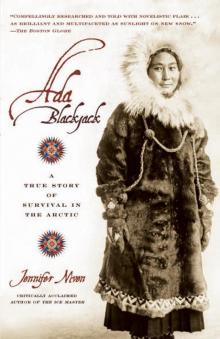 Ada Blackjack: A True Story of Survival in the Arctic
Ada Blackjack: A True Story of Survival in the Arctic The Aqua Net Diaries: Big Hair, Big Dreams, Small Town
The Aqua Net Diaries: Big Hair, Big Dreams, Small Town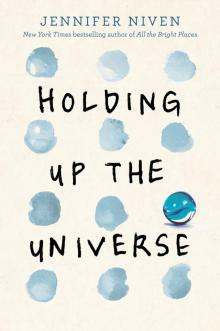 Holding Up the Universe
Holding Up the Universe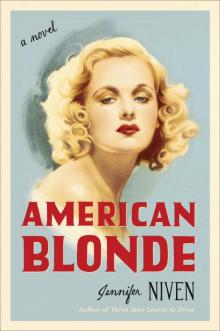 American Blonde
American Blonde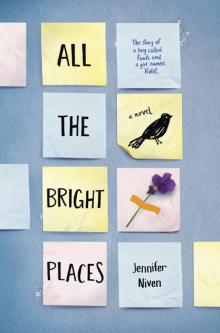 All the Bright Places
All the Bright Places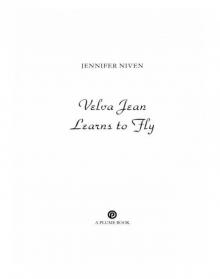 Velva Jean Learns to Fly
Velva Jean Learns to Fly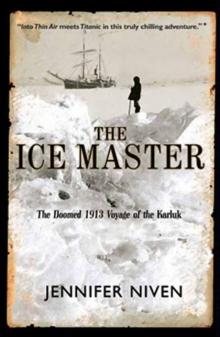 The Ice Master
The Ice Master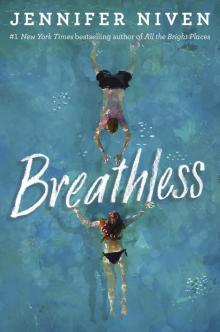 Breathless
Breathless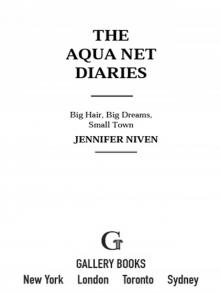 The Aqua Net Diaries
The Aqua Net Diaries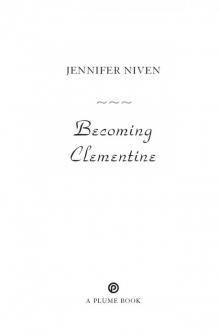 Becoming Clementine: A Novel
Becoming Clementine: A Novel